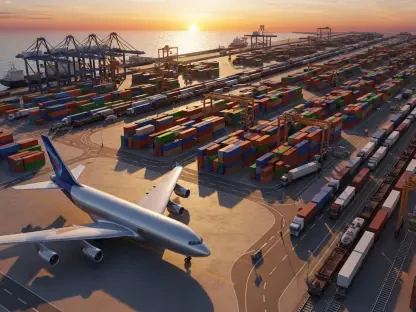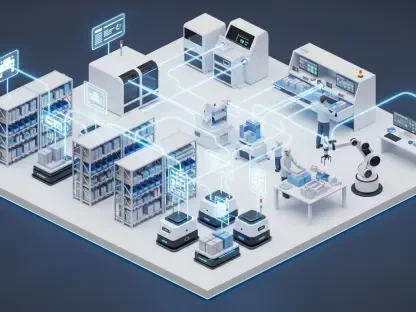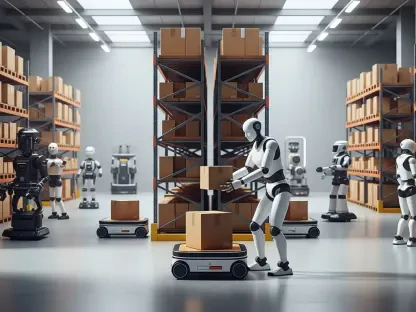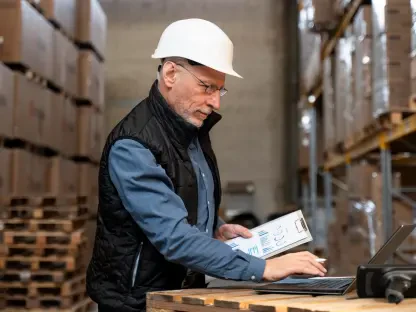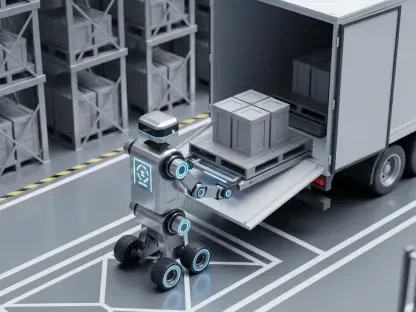DHL Supply Chain has made significant strides in modernizing freight transportation by launching autonomous transportation services in Texas, utilizing Volvo VNL Autonomous trucks equipped with the Aurora Driver self-driving system. This initiative, announced in a press release on December 11, will initially focus on two critical routes: Dallas to Houston and Fort Worth to El Paso. This marks a strategic effort to improve freight capacity and drive efficiencies within the supply chain amid the ongoing digital transformation of the logistics sector.
Strategic Importance of Texas
Enhancing Freight Movement in Texas
The decision to focus on Texas is highly strategic, considering that the state moves more freight than any other state in the U.S. Texas’ central location and extensive transport infrastructure make it a key player in the nation’s freight logistics. Additionally, Texas houses a considerable portion of DHL Supply Chain’s warehouses and operations, further cementing its importance in the company’s broader strategy. Jason Gillespie, DHL’s senior director of continuous improvement and innovation, emphasized that prioritizing Texas allows DHL to leverage its existing assets, ultimately facilitating quicker and more effective implementation of their autonomous vehicle (AV) program.
The initiative aims to address several industry challenges, including a rising need for freight services and a significant driver shortage. By deploying autonomous trucks, DHL expects to meet heightened freight demand without the constraints posed by limited human drivers. Moreover, the use of autonomous trucks can substantially cut down long transit times, enhancing overall delivery efficiency. This technological advancement represents a promising solution to some of the logistics industry’s most pressing issues, all while utilizing Texas’ prominent role in the U.S. freight network.
Collaborating with Industry Leaders
DHL’s autonomous trucking initiative aligns with a broader industry trend of embracing automation for logistics solutions. Other companies, such as Ryder System and Kodiak Robotics, are also exploring AV operations in Texas, capitalizing on the state’s favorable business environment and advanced transport infrastructure. This collaborative approach helps create a robust ecosystem that fosters innovation and growth in the autonomous trucking sector. By integrating Volvo’s VNL Autonomous trucks with the Aurora Driver self-driving system, DHL aims to build a reliable, safe, and efficient network for moving freight autonomously.
The trucks’ advanced features, such as real-time data processing and enhanced safety protocols, greatly contribute to the efficiency and reliability of freight transport. The partnership with Volvo and Aurora signifies a blend of cutting-edge technology and industry expertise, geared towards setting new standards for autonomous freight operations. This collaboration is expected to drive significant advancements in how goods are transported across long distances, potentially revolutionizing the logistics industry.
Addressing Challenges in Autonomous Trucking
Overcoming Insurance Hurdles
Despite the promise of autonomous trucking, the transition is not without its challenges. One of the most significant issues is related to insurance. Industry experts point out that several critical questions remain unanswered, including those concerning insurance premiums, risk assessment, and accountability in the event of accidents. Timothy Good, president of Good’s Insurance Agency, highlighted these uncertainties as pivotal aspects that need resolution for widespread adoption of autonomous trucking.
The ambiguity around insurance is primarily due to the nascent nature of AV technology and the lack of historical data to accurately assess risks. Traditional insurance models are not equipped to handle the unique requirements and risk profiles of autonomous vehicles. Insurers and industry stakeholders need to collaborate closely to develop new frameworks that address these concerns. Such frameworks would not only ensure the financial viability of AV operations but also pave the way for consumer trust and regulatory approval, essential components for the future success of autonomous trucking.
Preparing for Broader Adoption
DHL Supply Chain is making notable headway in revolutionizing freight transportation by rolling out autonomous transportation services in Texas. This development, revealed in a press release on December 11, involves using Volvo VNL autonomous trucks integrated with the Aurora Driver self-driving system. Initially, the service will concentrate on two key routes: the Dallas to Houston corridor and the Fort Worth to El Paso route. This initiative aims to bolster freight capacity and enhance efficiencies in the supply chain. DHL’s move is a strategic response to the ongoing digital transformation in the logistics industry, ensuring they stay at the forefront of technological advancements. The autonomous trucks are expected to not only streamline operations but also address the growing demands and complexities within the logistics sector. By adopting these innovative solutions, DHL is positioning itself as a leader in the field, committed to providing cutting-edge services and driving the future of freight transportation.

